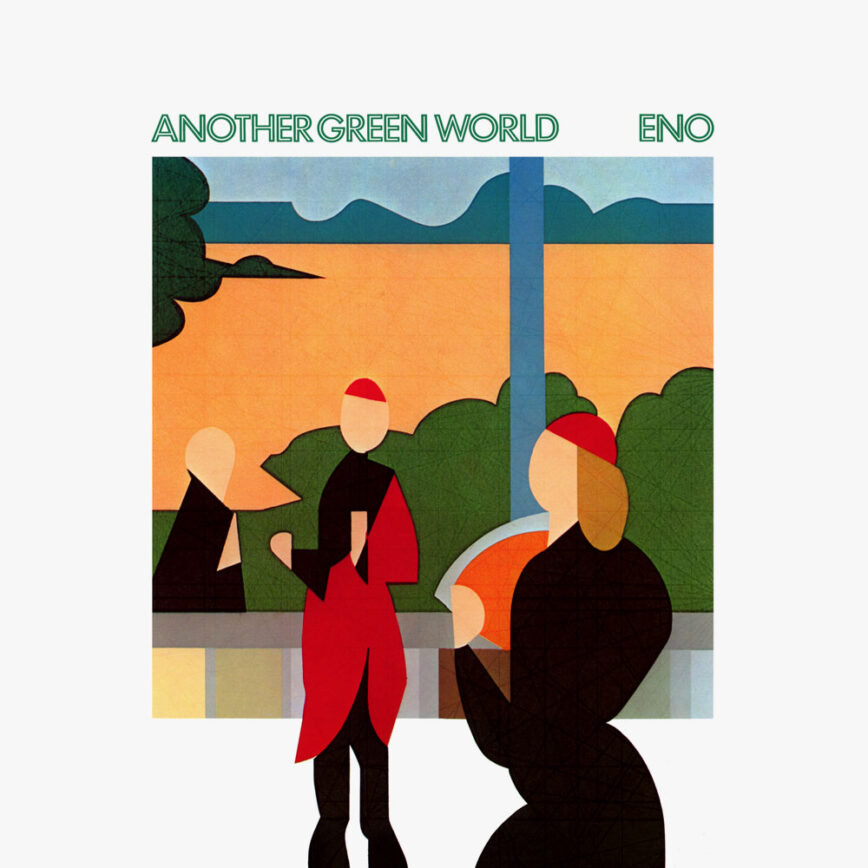While most peoples’ “all-time favourite desert island discs” lists tend to coincide with whatever they were listening to in their late teens/early twenties when their musical tastes were coalescing/calcifying – mine certainly did, at least when I kept such a list – sometimes you come across a record much later in life that is instantly an all-timer, and you know it the moment you hear it.
Brian Eno’s Another Green World was one such record. I didn’t hear it until maybe 2014, 2015 when it was already around 40 years old, and a years-long Bowie obsession had spilled into binging on his collaborators, but from the moment Robert Fripp’s snarling guitar lines opened up “Sky Saw”, I was hooked. Ambient, pop, aggressive, languid, mysterious, and open-hearted, Another Green World was a record that I knew would reveal something new about itself every time I listened to it, no matter how many times I did. And I was right – that sense of amazement and wonder the record evokes never fades.
Eno’s production techniques are a thing of legend, but going through this (relatively) short read at MusicTech about how he crafted this particular record was fascinating, particularly in that:
Eno began work on Another Green World… in June 1975, entering London’s Island Studios with literally no music prepared, seeing the oncoming sessions as a complete creative exercise from start to finish.
Landmark Productions: Brian Eno – Another Green World @ MusicTech
And one of the techniques he used – even when working with seasoned veteran players like Fripp, John Cale, and Phil Collins, was his Oblique Strategy cards:
“He gave us all a bit of paper, and we made lists from one to 15. Eno said ‘No. 2, we all play a G; No. 7 we all play a C sharp’; an so on. So it was like painting by numbers.”
Phil Collins,
Landmark Productions: Brian Eno – Another Green World @ MusicTech
Its worth noting that Pitchfork’s 2016 retroactive, totally obvious “10” review of the record – which is more just an expansive making-of/love letter to the album – refers to Greeta Dayal’s 33-1/3 series volume on the record (which I need to read, obviously) and expands on the above anecdote:
Not all Eno’s collaborators shared his sense of play. As told to Geeta Dayal in her book on the album, the bassist Percy Jones remembers him handing out sheets of paper on which musicians were asked to write numbers, which corresponded to a specific note, which Eno wanted them to play on beat with a metronome. Phil Collins—yes, “In the Air Tonight” Phil Collins, then the drummer of Genesis—got about 20 beats in before stopping to throw beer cans at a bicycle across the room. Eno often came home from the studio and cried, later calling the process “almost unmitigated hell.”
Brian Eno / Another Green World @ Pitchfork
Along with the review, Pitchfork produced a four-minute video about why the album is crucial:
But really, the best argument for the album is the album itself. Listen to it.

